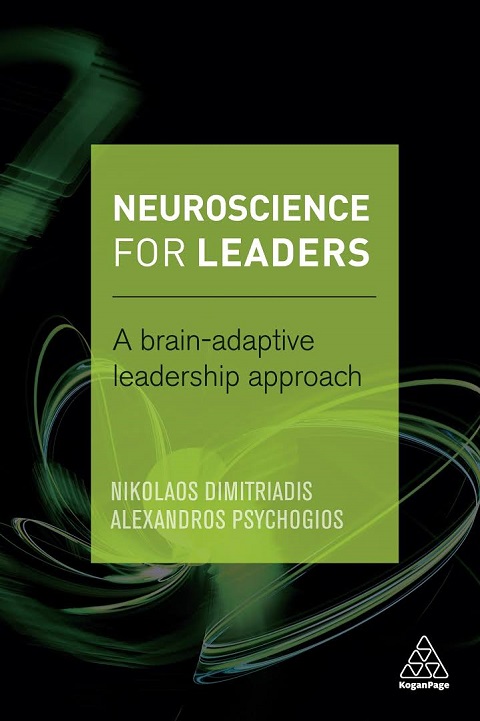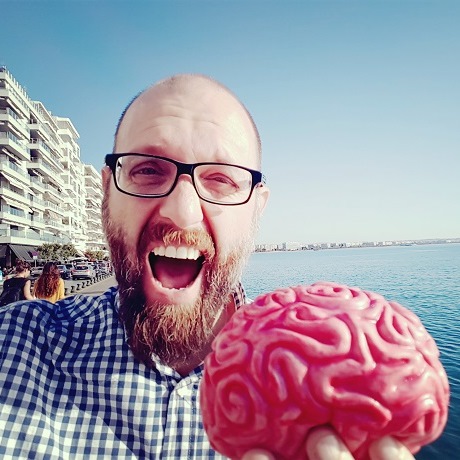
20/09/2019
A Great Brain Makes a Great Leader!
Dr Nikolaos Dimitriadis
Regional Director of The University of Sheffield International Faculty, City College, for the Western Balkan
A Great Brain Makes a Great Leader!
Everything we are is in our brain: our emotions, thoughts, plans, relations, habits, expertise… everything. And if it is not in the brain, it is in our gut which has the second largest concentration of neurons after the brain! So, the notion of an intelligent brain and a emotional heart is outdated and plain wrong. Our absolute administrative center is the brain for thoughts, emotions and behaviors with the second center being our gut. The heart is out… the gut is in!
The last 30 years our understanding of the brain increased drastically due to advances of neuro technology. We finally accepted the fact that this complex and wonderful organ inside our skulls is fully responsible for both our best and worse behavior. Leadership is no different.
Great leaders are those that develop fantastic relations with their teams and between teams. They inspire, protect and challenge their people, help everyone learn and develop, and take winning decisions based on real input from everyone around them. All those wonderful leadership behaviors are traced back in our brains. Brain Adaptive Leadership, the leadership model developed in our book Neuroscience for Leaders, is a holistic model of how to achieve best leading behaviors by understanding how the brain works and by taking positive steps to improve it. Yes, it can be done!

Leadership thinking went through many changes during the last century. From extremely simplistic approaches, like carrots and sticks, to more advanced ones like complexity and chaos theory, there is a constant race to unlock what make leaders great… because we know that great leaders bring great results. The missing link in this quest of great leadership was the brain. Your brain can be your best ally or your worse enemy depending how you treat it. It can help you unite your team, motivate your people and take winning decisions or it can make you do the opposite. We have enough insights about the brain today to create a holistic model, Brain Adaptive Leadership, that can help people worldwide utilize their most effective weapon: their own brain! Ignoring and mistreating your brain is actually the surest way to fail.
The most amazing message that neuroscience is bringing to humanity and to leadership, is ‘neuroplasticity’: the ability of the brain to change its physical structure as a result of dealing with new challenges. New neuros are born in our brain every day, till we die of old age, and new connections can be created based on our mood and behavior. This means we can actively change our brain to the better! All it takes is to learn what makes our brain better and what worse. Managers can improve the functionality of their brain and boost their creativity, willpower, work relations, influence and decision making. Brain Adaptive Leadership is an open concept because it invites everyone to do what nature allow us to: improve how our brains work to achieve more in very complex and demanding environments.
The need to change operating models of leadership is urgent. Today, up to 20% of people in top leadership positions can be diagnosed as psychopaths! If shareholders push corporate leaders to maximize short-term profits then the best leader is the one that will switch off empathy, ignore trust and abandon the internal urge to support common good. Consequently, leaders selfishly focus only on boosting short-term numbers regardless if this is bad for everyone else… including the company itself in the long-run. We have to urgently redefine success in our societies. I believe that discussion on the topic has already started and it is supported by neuroscience and other brain-related sciences.
The key insight is that the old model of autocratic leaders, behaving arrogantly and ignoring the wider impact of the decisions and actions has absolutely no scientific evidence showing that is successful for societies, communities, teams and the company overall. Quite the opposite: we now know that people able to connect deeply to others and to the overall environment they live in can achieve more. It is a pity that the business thinking still operates with outdated, unscientific and dangerous ideas.
The choice is simple: you either continue ignoring the fact that the brain is in control, not you, or you embrace this fact and you start working with your brain and the brains of those around you to achieve more and make the world a better place for all. Actually, don’t worry… your brain has probably already decided

AUTHOR
Dr Nikolaos Dimitriadis
Regional Director of The University of Sheffield International Faculty, City College, for the Western Balkan